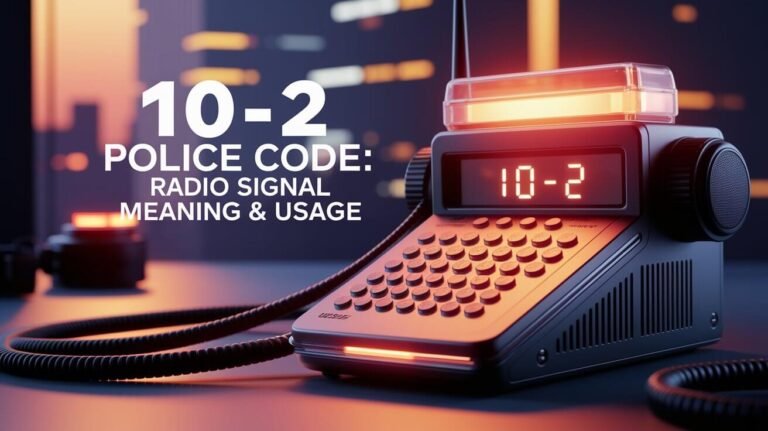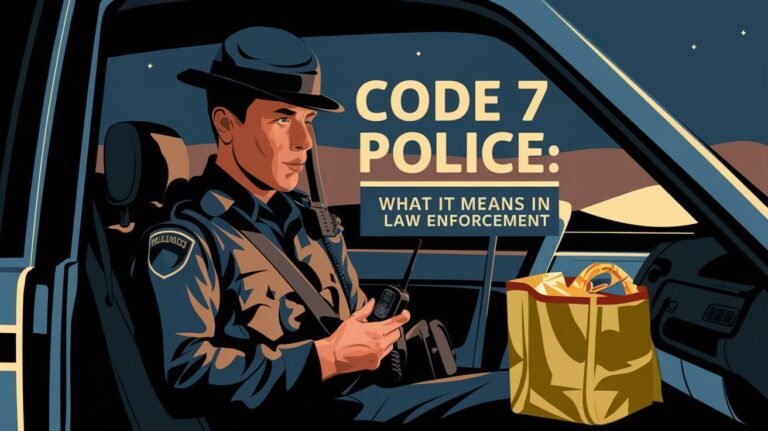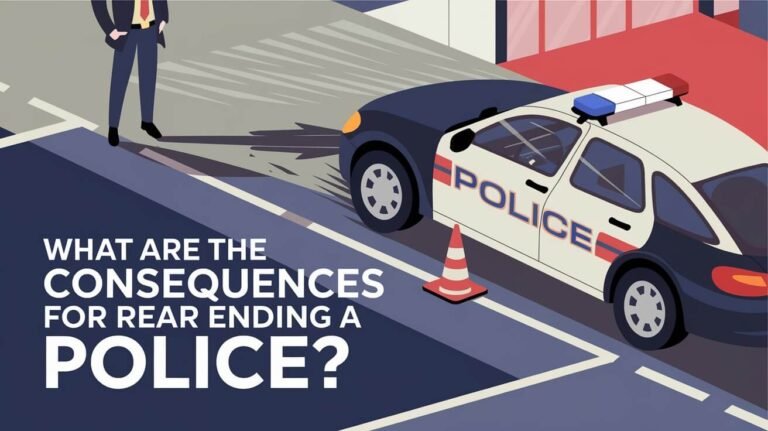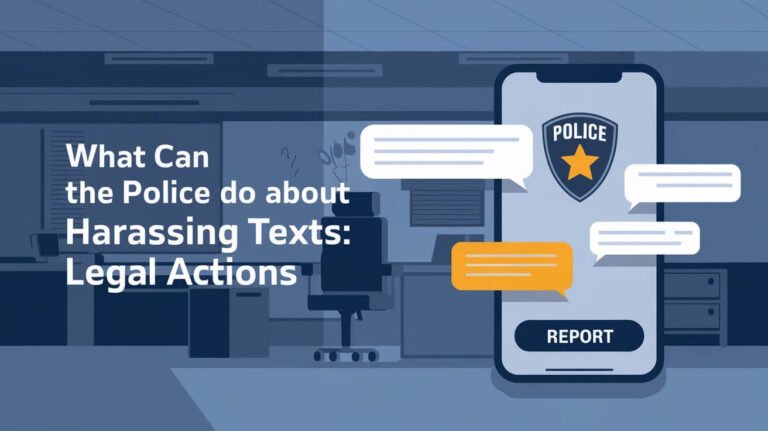Police Officer vs. Detective: Understanding the Key Differences
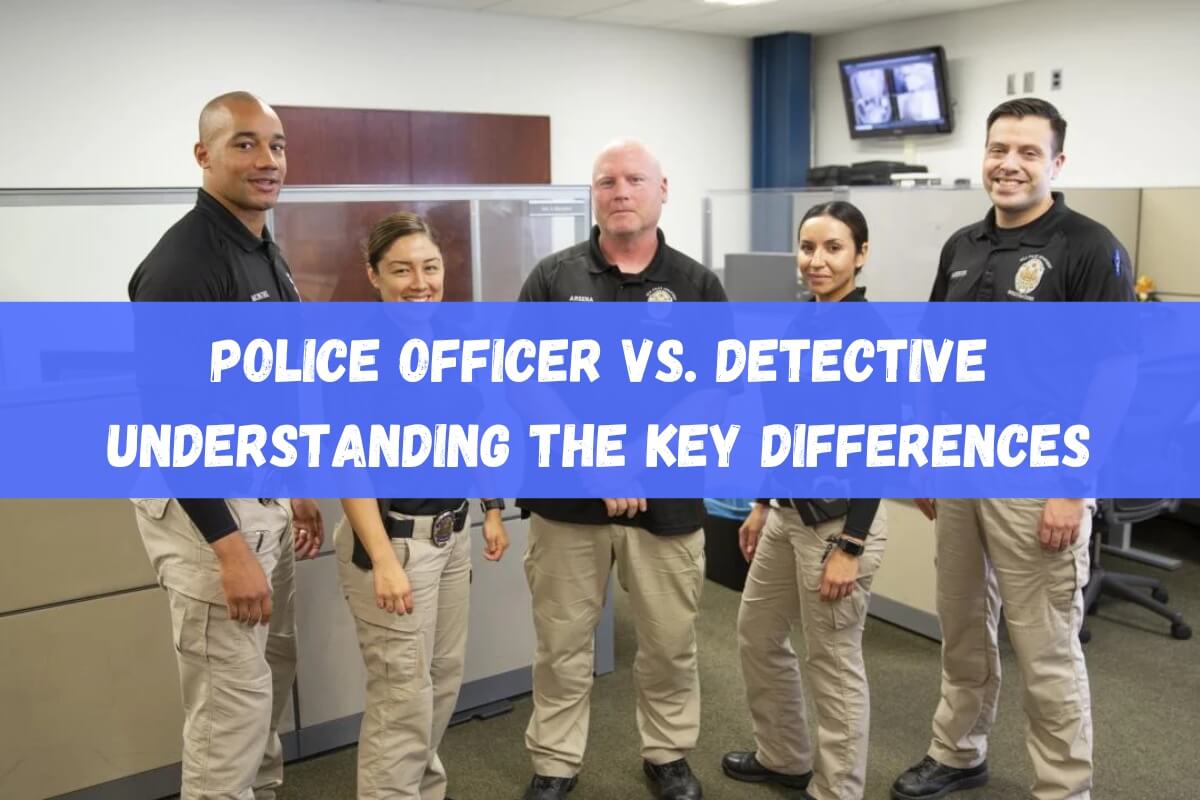
In the realm of law enforcement, the roles of police officers and detectives are often intertwined, yet distinct. Both play crucial roles in maintaining public safety and upholding the law, but their responsibilities and approaches differ significantly. Whether you’re considering a career in law enforcement or simply curious about the inner workings of these professions, this comprehensive guide will provide you with a thorough understanding of the police officer vs. detective dynamic.
Law enforcement is a noble profession that demands unwavering dedication, courage, and a commitment to serving the community. Police officers and detectives work tirelessly to uphold the law and ensure the safety of our neighborhoods. However, their day-to-day duties, specialized skills, and unique challenges often vary.
The key difference between a police officer and a detective lies in their primary roles. Police officers primarily serve as the front-line defense, responding to emergencies and maintaining public order. On the other hand, detectives focus on investigating crimes after they have occurred, piecing together evidence, and unraveling complex cases.
In this detailed article, we’ll explore the distinct roles and responsibilities of police officers and detectives, their educational requirements and training, work environments and challenges, salary and job outlook, as well as the various specialized units and areas of focus within detective work.
Roles and Responsibilities: Front-line Patrol vs. Criminal Investigation
Police Officers
Police officers are the backbone of law enforcement, serving as the first responders to emergencies and maintaining a constant presence in our communities. Their primary roles and responsibilities include:
- Patrolling assigned areas and communities to deter criminal activity and ensure public safety.
- Responding promptly to emergency and non-emergency calls, ranging from domestic disputes to traffic accidents.
- Enforcing laws and maintaining public order by addressing violations and issuing citations when necessary.
- Conducting traffic stops and enforcing traffic laws to promote safe driving practices.
- Securing crime scenes, gathering initial evidence, and taking witness statements.
- Writing detailed reports and testifying in court regarding incidents they have handled.
Police officers are the first line of defense, and their actions can significantly impact the outcome of a criminal investigation.
Detectives
While police officers focus on immediate response and maintaining order, detectives specialize in investigating crimes after they have occurred. Their primary responsibilities revolve around gathering evidence, identifying suspects, and building cases for prosecution. Some of their key duties include:
- Investigating crimes by collecting and analyzing evidence from crime scenes, such as fingerprints, DNA samples, and other physical clues.
- Interviewing witnesses and conducting thorough interrogations of suspects to gather valuable information.
- Collaborating with forensic specialists, medical examiners, and other law enforcement agencies to uncover critical evidence and insights.
- Building comprehensive cases and identifying perpetrators through meticulous investigation and analysis.
- Specializing in specific types of crimes, such as homicide, narcotics, fraud, or cybercrime, depending on the department’s structure.
- Preparing cases for prosecution and testifying as expert witnesses in court proceedings.
Detectives play a crucial role in solving complex crimes, ensuring that justice is served, and bringing closure to victims and their families.
Educational Requirements and Training
The educational requirements and training for police officers and detectives vary, reflecting the different levels of responsibility and expertise required in their respective roles.
Police Officers
To become a police officer, candidates typically need to meet the following educational and training requirements:
- Minimum education requirement: High school diploma or GED.
- Successful completion of a police academy training program, which covers topics such as law, firearms handling, self-defense, emergency vehicle operation, and report writing.
- On-the-job training and field experience under the supervision of experienced officers.
Many police departments prefer or require candidates to have completed some college coursework or hold a degree, often in fields like criminal justice or law enforcement.
Detectives
Detectives often begin their careers as patrol officers and work their way up through the ranks. However, to become a detective, additional educational and training requirements must be met:
- Typically, a bachelor’s degree in criminal justice, law enforcement, or a related field is required.
- Completion of additional specialized training in investigative techniques, crime scene processing, evidence collection, and interrogation methods.
- Several years of experience as a patrol officer, often with a minimum service requirement before being eligible for promotion to detective.
- Passing a written examination and/or promotional evaluation to demonstrate the necessary knowledge and skills for the detective role.
Continuous professional development and advanced certifications are also common for detectives, as they need to stay up-to-date with the latest investigative techniques, forensic advancements, and legal developments.
Work Environment and Challenges
The work environments and challenges faced by police officers and detectives are inherently different, reflecting the distinct nature of their roles and responsibilities.
Police Officers
Police officers often work in physically demanding and potentially dangerous environments, facing a variety of challenges:
- High rates of injuries and illnesses due to the physical nature of their work and exposure to hazardous situations.
- Shift work, including nights, weekends, and holidays, to ensure 24/7 coverage and public safety.
- Exposure to stressful situations, traumatic events, and potentially volatile individuals, requires emotional resilience and composure.
- Constant interaction with the public necessitates strong communication and interpersonal skills to defuse conflicts and maintain order.
Despite these challenges, police officers play a vital role in maintaining public safety and addressing emergencies as they arise.
Detectives
Detectives face a unique set of challenges in their pursuit of solving complex crimes:
- Intense workload and long hours, especially during active investigations or when working on high-profile cases.
- Pressure to solve cases and meet deadlines can be mentally and emotionally taxing.
- The emotional toll of dealing with victims, graphic crime scenes, and disturbing evidence, requires a strong psychological fortitude.
- Potential for undercover or surveillance work, which can be physically and mentally demanding.
- Collaboration with various law enforcement agencies and departments, necessitating effective communication and coordination skills.
Detectives face different challenges that require special skills and resilience, even if they don’t face physical danger daily like patrol officers.
Salary and Job Outlook
The compensation and job prospects for police officers and detectives can vary based on factors such as location, department, and years of experience.
Salary Comparison
According to data from the ZipRecruiter, the median annual wages for these professions in 2021 were:
- Police Officers: $62,148
- Detectives and Criminal Investigators: $75,325
Salaries can vary significantly based on geographic location, cost of living, and specific department or agency.
Job Outlook
The job outlook for police officers and detectives is generally positive, with steady growth projected in the coming years:
- Employment of police and detectives is projected to grow 3% from 2022 to 2032, about as fast as the average for all occupations, according to the BLS.
- Opportunities will arise from the need to replace workers who retire or leave the occupation, as well as potential increases in demand for public safety services.
- Job prospects may vary by location and depend on factors such as local budgets, crime rates, and population growth.
Competition for detective positions is intense, requiring several years of experience as a patrol officer and specialized training.
Specialized Units and Areas of Focus
In larger police departments, detectives often specialize in specific types of crimes or areas of investigation. These specialized units allow detectives to develop expertise and focus their efforts on particular areas of criminality. Some common specialized units include:
- Homicide Unit: Detectives in this unit investigate murders and suspicious deaths, working meticulously to gather evidence, interview witnesses and suspects, and ultimately bring perpetrators to justice.
- Narcotics Unit: Detectives in the narcotics unit focus on investigating drug-related crimes, including drug trafficking, distribution, and possession. They conduct undercover operations, surveillance, and raids to dismantle drug networks and disrupt illegal drug activity.
- Vice Unit: Vice detectives investigate crimes related to vice activities, such as prostitution, gambling, and illegal alcohol sales. They work to enforce laws and regulations about these activities.
- Robbery Unit: Detectives in this unit investigate armed robberies, burglaries, and other theft-related crimes. They analyze patterns of criminal behavior, gather evidence, and work to identify and apprehend suspects.
- Cybercrime Unit: With the rise of technology, many police departments have dedicated cybercrime units tasked with investigating crimes involving computers, the internet, and digital devices. These detectives specialize in tracking cybercriminals and protecting individuals and businesses from online threats.
- Special Victims Unit (SVU): The SVU investigates crimes involving vulnerable populations, such as children, the elderly, and victims of sexual assault or domestic violence. Detectives in this unit receive specialized training to handle sensitive cases and provide support to victims throughout the investigative process.
- Gang Unit: Gang detectives focus on investigating gang-related crimes, including violence, drug trafficking, and extortion. They work to disrupt gang activity, gather intelligence on gang members, and prevent gang-related violence within their communities.
- Auto Theft Unit: The Auto Theft Unit is another specialized division within large city police departments that focuses on investigating vehicle-related crimes. Detectives in the Auto Theft Unit are responsible for tackling offenses such as car theft, vehicle vandalism, and illegal chop shops. They employ various investigative techniques, including surveillance, undercover operations, and forensic analysis, to track stolen vehicles, dismantle theft rings, and recover stolen property.
- Cold Case Unit: Cold case detectives specialize in re-investigating unsolved cases, often years or decades after the crime occurred. Using advanced forensic techniques and technology, they aim to bring closure to victims’ families and hold perpetrators accountable for their actions, even when the trial has gone cold.
These specialized units reflect the diverse range of criminal activities that detectives must confront and the varying skill sets required to address them effectively.
Skills and Traits for Success
Police officers and detectives need different skills and qualities to succeed.
Police Officers
Successful police officers often possess the following skills and traits:
- Physical fitness and strength: The demands of the job require officers to be physically capable of pursuing suspects, restraining individuals, and responding to potentially dangerous situations.
- Communication and interpersonal skills: Effective communication is essential for defusing conflicts, interacting with the public, and maintaining order. Strong interpersonal skills also help officers build trust and rapport within the communities they serve.
- Sound judgment and decision-making: Police officers must make quick and rational decisions in high-pressure situations, often with limited information available.
- Empathy and conflict resolution abilities: Understanding different perspectives and using conflict resolution techniques can help officers de-escalate tense situations and prevent violence.
- Attention to detail and observational skills: Keen observation and attention to detail are crucial for gathering accurate information, identifying potential threats, and collecting evidence.
Detectives
In addition to the skills required for police officers, successful detectives often possess the following specialized abilities:
- Critical thinking and problem-solving: Detectives must analyze complex situations, connect seemingly unrelated pieces of information, and develop strategies for solving crimes.
- Analytical and deductive reasoning: Piecing together evidence and drawing logical conclusions are essential components of detective work.
- Attention to detail and meticulous record-keeping: Overlooking a small detail or failing to document evidence properly can compromise an entire investigation.
- Interviewing and interrogation techniques: Effective questioning and the ability to read body language and detect deception are invaluable skills for detectives.
- Perseverance and determination: Solving complex cases often requires relentless effort, persistence, and the ability to keep going in the face of setbacks or dead ends.
- Strong writing and communication skills: Detectives must communicate their findings clearly and concisely, both in written reports and when testifying in court.
The skills required for police officers and detectives overlap, but detective work demands a unique set of abilities that are developed through experience and specialized training.
Frequently Asked Questions
Can a police officer become a detective?
Yes, police officers can typically become detectives after gaining several years of experience as a patrol officer. The path to becoming a detective often involves earning a bachelor’s degree (if not already obtained), passing a written examination and/or promotional evaluation, and completing additional training in investigative techniques and procedures.
What education is required to become a detective?
While educational requirements may vary by department, most detective positions require a bachelor’s degree in criminal justice, law enforcement, or a related field. Some departments may accept a combination of relevant work experience and coursework instead of a full degree.
Do detectives make more money than police officers?
Generally, yes. According to data from the U.S. Bureau of Labor Statistics, the median annual wage for detectives and criminal investigators ($75,325) is higher than the median annual wage for police and sheriff’s patrol officers ($62,148). However, salaries can vary based on factors such as location, department, and years of experience.
Are detectives considered law enforcement officers?
Yes, detectives are considered law enforcement officers. While they may have distinct roles and responsibilities compared to uniformed patrol officers, detectives are still part of law enforcement agencies and have the authority to enforce laws, make arrests, and investigate crimes.
What are the most common types of specialized detective units?
Some of the most common types of specialized detective units in larger police departments include homicide units, narcotics units, vice units, robbery units, cybercrime units, special victims units (SVU), gang units, auto theft units, and cold case units. These specialized units allow detectives to develop expertise and focus their efforts on particular areas of criminality.
Conclusion
The roles of police officers and detectives are distinct yet complementary, each playing a vital role in the pursuit of justice and public safety. While police officers serve as the front-line defense, responding to emergencies and maintaining order, detectives delve into the intricate world of criminal investigations, piecing together evidence and unraveling complex cases.
Both professions require dedication, courage, and a commitment to serving the community. Law enforcement professionals work tirelessly to uphold the law and ensure neighborhood safety, whether patrolling streets or gathering clues. Understanding the differences between these roles helps you make an informed career decision and find a path that aligns with your strengths and aspirations.


